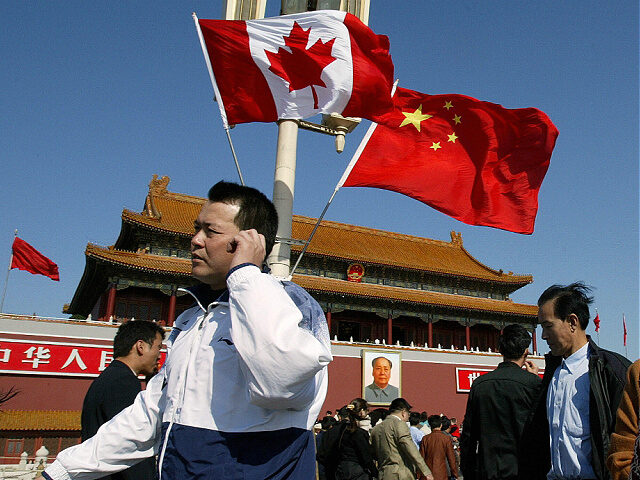China’s Foreign Ministry on Saturday announced the assets of two Canadian human rights groups have been frozen in retaliation for their advocacy on behalf of the oppressed Uyghur Muslims and Tibetans.
The two Canadian entities affected by China’s sanctions are the Uyghur Rights Advocacy Project (URAP) and the Canada Tibet Committee. Twenty members of the two organizations were listed by name, 15 of them from URAP.
The regime in Beijing said both groups will be prohibited from doing business with Chinese organizations or individuals, and members of the Canadian groups will be barred from traveling to China, Hong Kong, or Macau.
The Foreign Ministry described the sanctions as “countermeasures” under China’s Anti-Foreign Sanctions Law. The statement did not say exactly why these countermeasures were being undertaken, but it was almost certainly a response to Canada announcing sanctions against eight current and former Chinese officials on December 10, which was International Human Rights Day.
Canada sanctioned the eight Chinese officials, including the former Chinese Communist Party chiefs for Tibet and Xinjiang — the Chinese province where most Uyghurs live — for their roles in human rights abuses including arbitrary detention, forced labor, religious oppression, and both psychological and physical abuse.
“Canada continues to raise concerns regarding human rights violations in China and calls on the Chinese government to uphold its international human rights obligations, including through the United Nations Human Rights Council,” the Canadian Foreign Ministry said on December 10.
Canadian Foreign Minister Melanie Joly also called out “Chinese government-led repression” of Falun Gong practitioners when announcing the sanctions.
URAP Executive Director Mehmet Tohti said on Monday his group would accept China’s sanctions as a “badge of honor.”
“They do not deter us but rather strengthen our determination. This confirms that we are on the right path,” he said.
“This move actually strengthens our resolve to keep on this path and continue to advocate for policies that bring about a just and equitable solution to the harsh occupation and repression now ongoing in Tibet,” the Canada Tibet Committee said in a similar spirit of defiance.
URAP legal adviser Sarah Teich of the Human Rights Action Group called China’s sanctions a “classic move from the authoritarian playbook,” and said there was no moral or legally acceptable rationale for attacking non-profit groups in retaliation for the Canadian government’s “sanctions on gross human rights violators.”
“The consequences on those with family members in the PRC may be severe and should be condemned by the Canadian government at every opportunity and in the strongest possible terms,” she said.

COMMENTS
Please let us know if you're having issues with commenting.